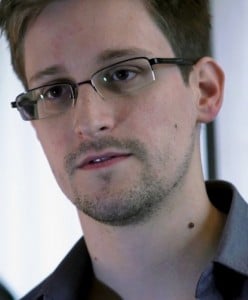 By Marrissa Ballard | Staff Writer
By Marrissa Ballard | Staff Writer
CitizenFour is a new documentary that explores Edward Snowden and the media’s journey to releasing the leaks about the National Security Agency’s actions in 2013.
The movie has been released to select cities and theaters around the country. The showings, scheduled throughout November, can be found on the movie’s website.
The documentary shows exclusive video of Edward Snowden before, during and after he leaked the information, as well as court cases and addresses from government figures such as President Obama. The story is told through video, text and voice-over.
Laura Poitras directed the film. The footage includes interviews conducted by Poitras and Glenn Greenwald, who wrote many stories about the leaks.
The media coverage of the NSA was controversial and not viewed favorably by Obama and much of the government, which is also demonstrated in the movie.
Though the narrative is broken into many smaller pieces utilizing different storytelling devices, such as an instant message conversation on a black screen, the movie is cohesive and well-put together. The story is easy to follow because it is organized in chronological order, from the first contact between Snowden, Greenwald, and Poitras to one of the last meetings between them.
The tone and atmosphere of the movie is chilling and intense. Snowden’s paranoia and anxiety become increasingly apparent as the movie goes on. In one scene, Snowden jokes about leaving SD cards in computers. Though he jokes, the threat of being tracked is still obvious.
The movie definitely looks favorably on Snowden and the journalists, especially since we see the story through Poitras’ camera lens. Though she is present the whole time, she is rarely if ever physically shown.
The NSA leaks are still a controversial and scary issue for the American public. The movie is extremely informative not only on how the leaks reached the media, but also on what they meant. Many times throughout the film Snowden and Greenwald explain to the public what information the NSA has exactly, explaining how people can be tracked through email, phone calls, and credit cards.
I know that I walked out of the film with a greater understanding of Snowden’s actions and the information he gave. I was also deeply unsettled and paranoid about how much of my actions are traced and watched by the government. I would recommend the movie to anyone, especially those with an interest in privacy and the American government.
The movie is a look at not only the importance of journalism and media in American society, but the idea of privacy in this technology-driven world. It is worth seeing if only for the explanation of the leaks and what the NSA actually does. Not only is it informative, it is also entertaining and an intense viewing experience.














